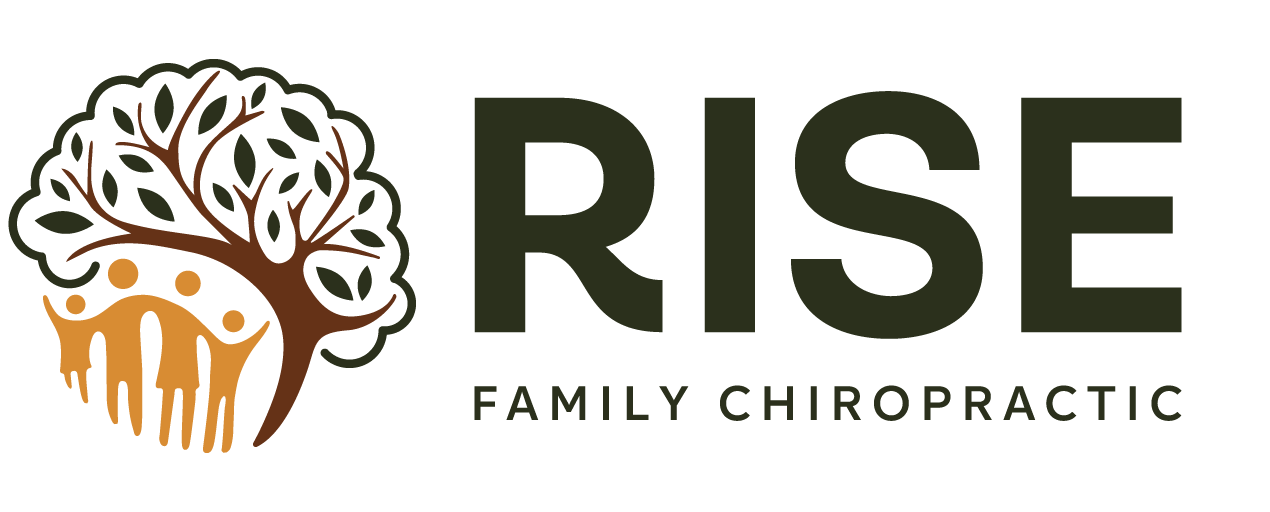Pregnancy comes with its fair share of stress. That is normal. You are growing a new life, your body is changing daily, and you are preparing for one of the biggest transitions of your life. Feeling worried, overwhelmed, or even anxious at times is simply part of being human.
So if you have had stressful moments during your pregnancy, please hear this: it does not mean you are failing, and it does not mean your baby is in danger. The last thing you need is to stress about being stressed.
What matters is when stress goes beyond those normal ups and downs. When stress builds up too much, from physical changes, mental and emotional strain, or chemical exposures, that is when it starts to overload your nervous system. And when your nervous system becomes overwhelmed, that rhythm is shared with your baby.
As Dr. Stefan often says, “Moms are superheroes. To carry a child and keep yourself going through all the physical changes, the mental weight, and even the chemical demands, it makes sense that stress can feel heavy at times. The key is not to feel guilt about it, but to know that your body can be supported back into balance.”
What We Mean by Stress
Most people think of stress as purely mental, like worries, racing thoughts, or anxiety. But stress shows up in three forms:
- Physical stressors such as poor sleep, posture changes, aches, or birth interventions.
- Mental and emotional stressors like worry about labor, finances, or adjusting to motherhood.
- Chemical stressors from environmental toxins, medications, processed foods, or even excess hormones.
Your body is designed to handle these stressors in small amounts. But when they stack up too high, they overload the nervous system, which is the master control center for both you and your baby.
How Stress Affects Baby’s Development
During pregnancy, your baby’s nervous system is developing in rhythm with yours. When your nervous system is calm and balanced, that balance is passed along to your child. When it is overstressed, the effects ripple through to your baby.
Here is what the research and clinical experience show:
- The stress response is “wired in.” When your nervous system is in fight-or-flight, stress hormones like cortisol cross the placenta. Over time, this can make your baby’s nervous system more sensitive to stress after birth.
- Brain development can be influenced. Studies show that high prenatal stress impacts the amygdala and hippocampus, the brain’s centers for emotions and memory. This can increase the likelihood of regulation challenges later in childhood.
- Immune and digestive systems can be disrupted. Because the vagus nerve regulates digestion and immunity, prenatal stress that suppresses vagal tone can lead to colic, reflux, or immune struggles in infants.
Dr. Stefan often explains it this way: “Your baby doesn’t just inherit your genetics. They also share in the environment of your nervous system. When we help mom regulate her system, we are not just supporting her. We are giving that baby a calmer, healthier start too.”
How Chiropractic Care Supports Moms and Babies
Chiropractic during pregnancy focuses on the nervous system. Gentle, specific adjustments to the neuro-spinal system help reduce the overload of physical, mental, and chemical stressors.
This allows your body to:
- Calm the fight-or-flight response
- Restore balance to the parasympathetic system, which promotes rest, digestion, and growth
- Support better circulation and hormonal balance for both mom and baby
- Create an environment where your baby develops within a calmer, safer rhythm
The Vagus Nerve and Your Baby’s Calm Center

One of the most important, yet overlooked, players in the story of prenatal stress is the vagus nerve. It is the longest cranial nerve in the body and plays a key role in regulating digestion, immunity, and most importantly for expecting moms – rest and emotional regulation.
When the vagus nerve is active and functioning well, your body feels calm, grounded, and safe. This is the parasympathetic state where healing and growth happen. But when stress is high for too long, vagal tone drops, and the nervous system gets stuck in fight-or-flight.
Here’s why that matters for your baby:
- The vagus nerve helps develop the baby’s digestive system. Poor vagal tone has been linked to increased chances of colic, reflux, and constipation in newborns.
- It also shapes how your baby learns to regulate emotions. A calmer maternal nervous system promotes more resilient emotional wiring in your baby’s brain.
- Vagal stimulation supports better heart rate variability, which is a key marker of both nervous system adaptability and long-term well-being.
Chiropractic adjustments, especially those focused on neuro-spinal balance, have been shown to support vagal function by reducing interference and improving communication between the brain and body. This is one reason so many pregnant moms notice a greater sense of peace and ease as care continues.
Stress & Birth Outcomes: What You May Not Hear Enough About
One of the lesser-known but most important reasons to care for prenatal stress is its potential effect on the birth process itself. When your nervous system is regulated, labor and birth are often more efficient, less painful, and better supported.
When stress goes unchecked, however, the following birth challenges may be more likely:
- Prolonged labor: A dysregulated nervous system can delay cervical dilation and reduce the body’s ability to respond to contractions.
- Poor fetal positioning: Chronic stress can lead to imbalances in pelvic muscles and ligaments, which in turn may cause breech or posterior positioning.
- Increased intervention: Stress hormones can reduce oxytocin levels (the hormone that drives contractions), potentially increasing the need for augmentation or C-sections.
- Delayed bonding or breastfeeding challenges: Babies born after a highly stressful pregnancy may take longer to settle into routines, latch, or bond.
Dr. Stefan explains it this way: “Your nervous system doesn’t just influence your emotions, it influences how your muscles contract, how hormones are released, and how your body prepares for birth. Regulation is not just about feeling calm, it’s about allowing your body to do what it was designed to do.”
Breaking the Cycle of Generational Stress
One of the most powerful parts of regulating your nervous system during pregnancy is that you’re not just healing yourself, you’re helping shift the story for the next generation.
Studies in epigenetics have shown that a mother’s experiences, especially during pregnancy, can impact how genes are expressed in her child. This doesn’t mean stress will “damage” your baby. It means your nervous system and environment are influential. That’s also why it’s never too late to make a positive shift.
Here’s what breaking the cycle can look like:
- A mother who learns to regulate her emotions during pregnancy may raise a child with more emotional flexibility.
- A nervous system that learns safety in the womb builds stronger immunity, digestion, and developmental regulation after birth.
- A mom who feels empowered and supported during pregnancy may be more confident in early parenting decisions, reducing future stress.
It’s not about being perfect. It’s about creating a different pattern. One that starts with you feeling seen, supported, and aligned during this season of incredible transformation.
What Moms Notice
Many mothers under care share experiences like:
- Sleeping more peacefully
- Feeling calmer and less reactive to daily stress
- Experiencing fewer digestive upsets and headaches
- Moving through pregnancy with more ease and confidence
One expecting mom told Dr. Stefan, “Before care, I worried constantly about how my stress was affecting my baby. Once my body calmed, I could feel the difference. It wasn’t just me who felt better. I knew my baby was benefiting too.”
A Gentle Next Step
If you have worried about the effects of stress on your baby, please know this: you are not alone, and you are not powerless. Normal stress is part of pregnancy, but when it starts to feel like too much, there is help and there is hope.
Dr. Stefan often tells moms, “There’s a reason your body feels overwhelmed, and there’s a plan to bring it back into balance. You are doing something extraordinary, and it makes sense to need support along the way.”
At Rise Family Chiropractic, our goal is to help you understand your nervous system, release the stress patterns that hold you back, and create the best possible environment for your baby’s development.
We invite you to continue exploring our resources, connecting with our community, and learning how to support both yourself and your child.
Because both you and your baby deserve more than just getting through pregnancy. You deserve to thrive in it.

